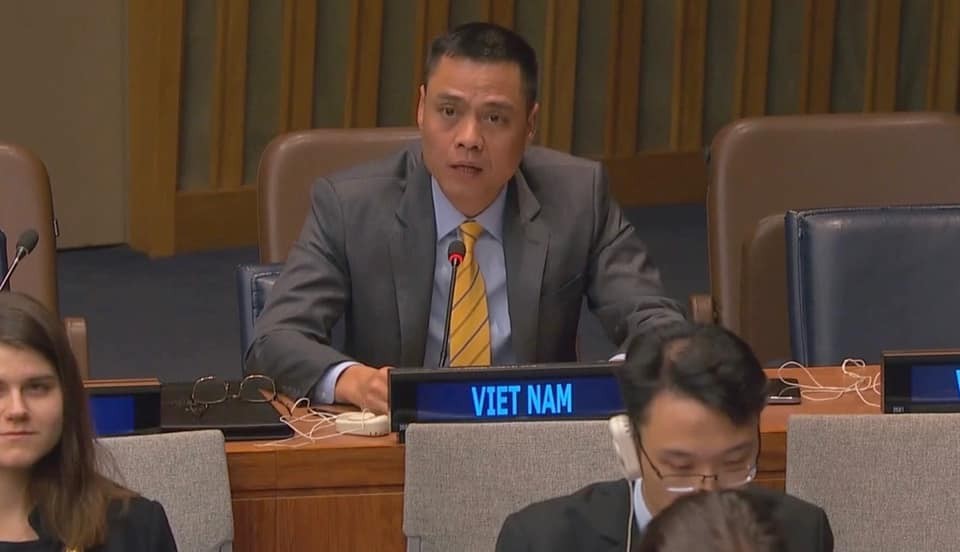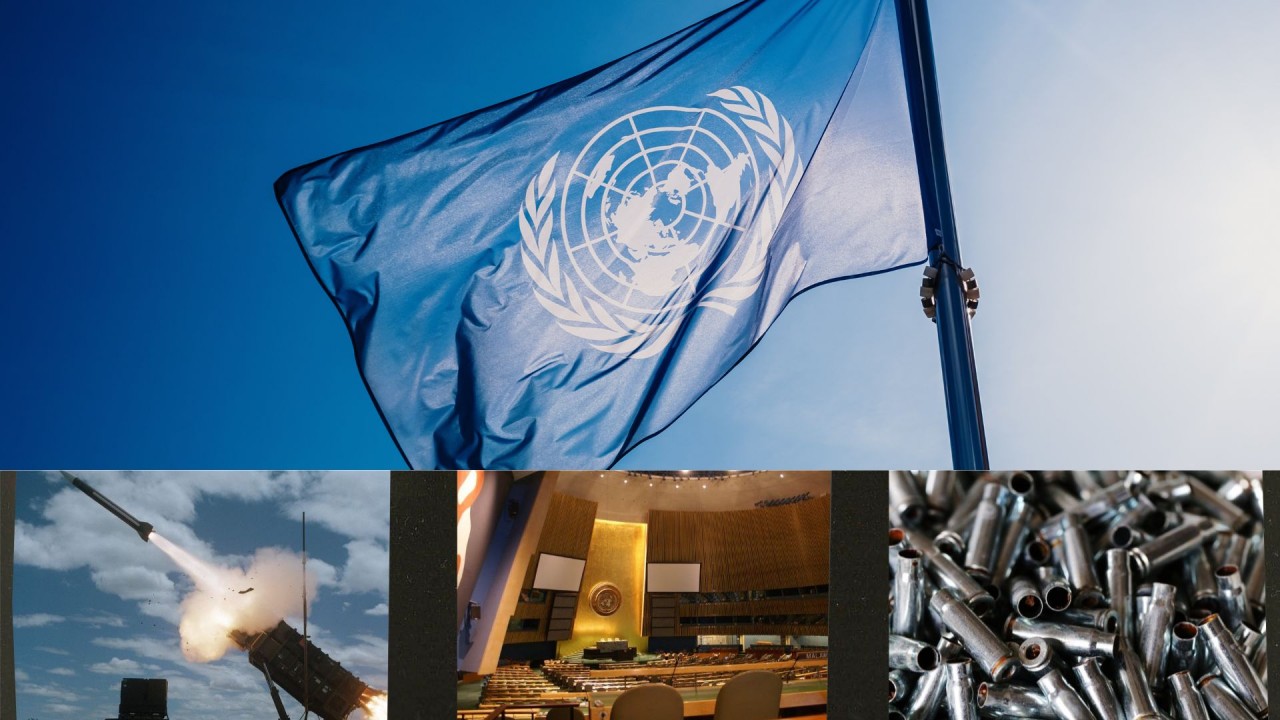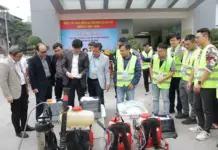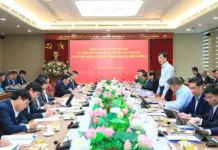Vietnam appealed to countries to augment international efforts in disarmament and non-proliferation, during a general debate of the United Nations General Assembly’s Disarmament and International Security Committee on October 10, VNA reported Tuesday.
 |
| Ambassador Dang Hoang Giang, Vietnam’s Permanent Representative to the United Nations. Photo: VNA |
Ambassador Dang Hoang Giang, Permanent Representative of Vietnam to the UN, held that the current international security environment is the most complex in decades, which may adversely affect common efforts by the international community.
In that context, countries should strengthen international efforts in disarmament and non-proliferation to protect the hard-earned achievements, he said, calling for the joint promotion of a framework for effectively responding to new challenges and areas like cyber security and outer space issues.
In that process, it is necessary to continue complying with the fundamental principles of international law and the UN Charter, promote the peaceful settlement of international disputes, maintain the centrality of multilateralism, and boost the mechanism for global disarmament, according to the diplomat.
Giang also reaffirmed Vietnam’s readiness to actively engage in the committee’s common works and support for efforts for the sake of a world of peace, stability, and development.
At the debate, which attracted nearly 140 member states and observers, most participants shared the view that international security is facing many unpredictable challenges such as armed conflicts, risks of nuclear threats and use, and risks of weapons falling into the hands of terrorist groups and crime gangs or used for illegal purposes.
Many affirmed that promoting diplomacy and dialogue remains an effective measure for easing tensions, deepening mutual understanding, and creating a favourable environment for international peace and security.
 |
| The Disarmament and International Security Committee (First Committee) is one of the six main ones of the UN General Assembly. |
The First Committee of the UN General Assembly (UNGA) and the UN Disarmament Commission (UNDC) are subsidiary organs of the UNGA, where the issues of disarmament and non-proliferation are discussed collectively among all the members of the UN.
The First Committee is held in October after two weeks of the general debate sessions by the GA. The UN First Committee discusses all topics related to disarmament and international security.
Due to decision from the first Special Session on Disarmament (SSOD1) of the UN General Assembly held in 1978, it was decided that the First Committee should deal “only with questions of disarmament and related international security questions”, which has remained its primary focus ever since. Every year the Committee adopts a large number of disarmament-related resolutions, which are of significant importance for indicating trends in disarmament and non-proliferation, as well as issues ripe for negotiation.
Its current session is set to last until early November.
Last month, during a meeting held by the UN General Assembly to mark International Day for the Total Elimination of Nuclear Weapons in New York, Ambassador Giang also emphasized international law observance, countries’ fulfillment of obligations, and the implementation of the Treaty on the Non-Proliferation of Nuclear Weapons (NPT), and the Treaty on the Prohibition of Nuclear Weapons (TPNW).
Global nuclear disarmament is a long-term goal of the UN which, however, will face headwinds, the ambassador noted.
Vietnam proposes intensifying dialogues and negotiations of international agreements on the reduction of nuclear weapons and fissile materials, Giang said, stressing the need to raise public awareness of the catastrophic consequences of the weapons.
He also reiterated Vietnam’s consistent policy of supporting nuclear disarmament, towards the total elimination of the weapons, as well as the country’s commitment to seriously fulfilling its obligations under relevant treaties, including the NPT, the TPNW, the Comprehensive Nuclear-Test-Ban Treaty (CTBT), and the Southeast Asia Nuclear-Weapon-Free Zone (SEANWFZ).
Myanmar leaders welcome Vietnamese PM
Myanmar leaders welcomed Prime Minister Nguyen Xuan Phuc in Nay Pyi Taw on December 17 during his official visit to the country.








